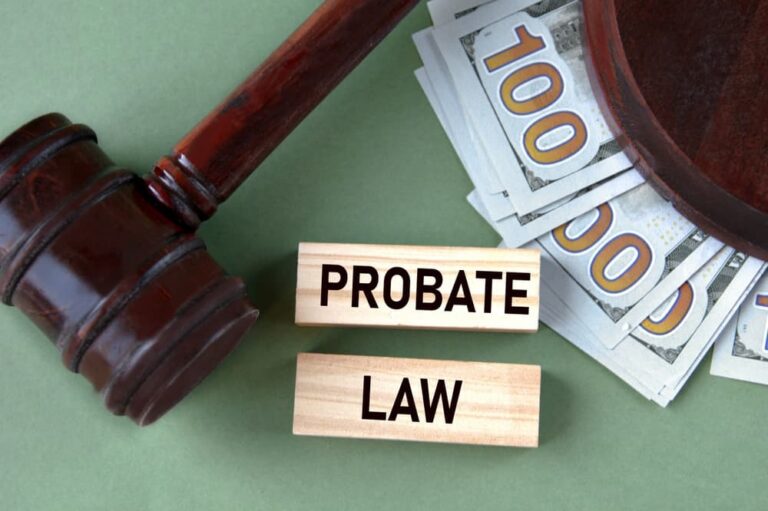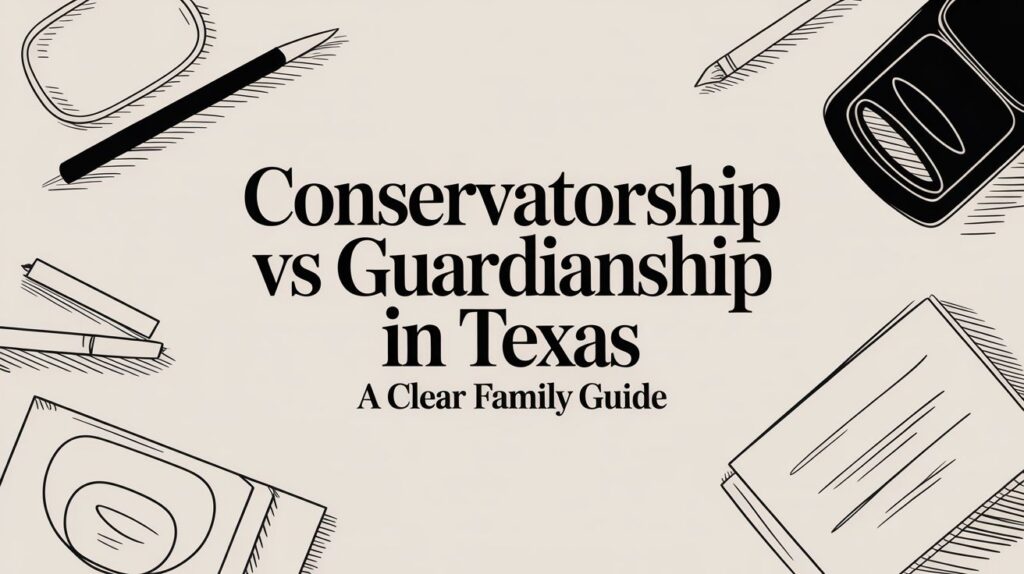If you’re dealing with the passing of a loved one and wondering what are probate assets in Texas, you’re not alone. It’s one of the most common—yet confusing—questions asked in the early stages of settling an estate. The word “probate” itself tends to carry a heavy emotional weight, especially when family, finances, and legal paperwork are involved. But understanding what probate assets are (and what they are not) is a critical first step toward navigating the Texas probate system with confidence.
In this guide, we’ll break down the meaning of probate assets in Texas, how to identify them, and the legal process of classifying and distributing those assets. Along the way, we’ll share real-world stories and examples that illustrate how one misunderstood asset can turn into a full-blown legal headache—or, with the right planning, a smooth and respectful transfer of a loved one’s legacy.

Understanding the Basics: What Are Probate Assets in Texas?
At the heart of every Texasprobate case is the division of assets. But here’s the key: not all assets go through probate. So what are probate assets in Texas?
Probate assets are those owned solely by the deceased person at the time of death, with no named beneficiary or automatic right of survivorship. These assets must be distributed under court supervision through the probate process.
Examples of probate assets in Texas include:
- A home solely in the decedent’s name
- Vehicles not held in joint ownership
- Bank accounts without payable-on-death (POD) designations
- Personal property like jewelry, art, and collectibles
- Investment accounts without a named beneficiary
- Business interests without a succession plan
In short, if the asset doesn’t have a clear pathway for ownership transfer outside of probate, it’s probably a probate asset.
Non-Probate vs. Probate Assets: Why the Distinction Matters
Let’s imagine a situation involving two adult children, Jack and Clara, who lost their mother unexpectedly. She left behind a will that named both children as beneficiaries. While sorting through her affairs, they discover:
- A house titled only in her name
- A joint checking account shared with Clara
- A life insurance policy naming Jack as the sole beneficiary
- A 401(k) plan with no named beneficiary
- A paid-off Toyota Camry in her name
Here’s where understanding what are probate assets in Texas becomes essential. Only the house, the 401(k) without a beneficiary, and the Toyota go through probate. The checking account passes directly to Clara. The life insurance goes straight to Jack. Probate court doesn’t touch those.
By classifying assets accurately, families can save time, money, and avoid bitter disputes.
The Role of a Will in Determining Probate Assets
People often think that having a will keeps everything out of probate. That’s a myth. In Texas, having a will means the probate court knows how to distribute probate assets, but it doesn’t eliminate the process.
Example: When a Will Isn’t Enough
Consider a widower named Ben who passed away in El Paso. He had a will leaving his home and bank accounts to his nephew. But those accounts had no designated beneficiary, and the home title was only in Ben’s name. The assets still had to go through probate—even with a will—because no other legal mechanism allowed them to transfer automatically.
So, while a will plays a critical role, it only governs probate assets—not those with automatic legal transfers in place.
How to Identify Probate Assets in Texas
Let’s walk through a practical, step-by-step approach for identifying what are probate assets in Texas. Families and executors can use this checklist when starting the estate administration process. Taking a thorough and organized approach from the start can help prevent legal confusion and delays.
Step 1: Review the Deceased’s Will and Estate Plan
Start with the will—if there is one. Look for references to specific property and named beneficiaries. But remember, the will only applies to probate assets. If the will is unclear or outdated, professional legal guidance may be necessary to interpret its instructions.
Step 2: Gather Financial Statements and Titles
Collect paperwork related to:
- Real estate deeds
- Vehicle titles
- Bank and investment account statements
- Retirement plans and life insurance policies
- Business ownership documents
Make copies of all documents and keep a secure file to ensure nothing gets lost during the probate process.
Step 3: Look for Transfer-on-Death (TOD) or Payable-on-Death (POD) Designations
Assets with TOD or POD instructions typically skip probate entirely. If a bank account lists a child or spouse as a POD beneficiary, it goes directly to them upon death. These designations should be verified with the financial institutions to ensure they were properly executed.
Step 4: Evaluate Ownership Type
Was the asset owned jointly with right of survivorship? In Texas, that means the surviving owner automatically gets full ownership—no court required. However, if the documentation is unclear, title research or legal interpretation may be necessary to determine ownership status.
If an asset is owned as “tenants in common,” however, the deceased’s share must go through probate. Each co-owner’s share is treated independently and must be evaluated as part of the estate.
Step 5: Assess Community Property Rules
Texas is a community property state. That means assets acquired during a marriage are typically considered jointly owned, even if one spouse’s name is on the title. However, that doesn’t mean the surviving spouse gets everything outright. If the deceased didn’t plan properly, their share of community property may need to go through probate. Courts may need to review marriage history and asset acquisition dates to clarify ownership proportions.

Special Category: Real Estate as a Probate Asset
Real estate in Texas often becomes the centerpiece of probate cases. That’s because so many people forget to update titles, add joint owners, or file a Transfer on Death Deed. Overlooking these steps can create unnecessary hurdles for surviving family members.
If a home or piece of land is titled solely in the deceased’s name, it becomes a probate asset—even if there’s a will. The court must validate the will, confirm the rightful heirs, and approve the transfer. This process ensures legal ownership is correctly passed on and that no competing claims exist.
Avoiding Probate for Real Estate
To keep real estate out of probate, Texans can:
- Execute a Transfer on Death Deed (TODD)
- Title the home as joint tenancy with right of survivorship
- Establish a revocable living trust
Each method has pros and cons, and not every solution fits every situation. But they can offer a clear path around probate when properly executed.
Business Interests as Probate Assets
Small business owners often overlook this critical detail. If the deceased owned a sole proprietorship or held shares in a company without a buy-sell agreement or trust-based succession plan, those interests are typically probate assets.
This can freeze business operations, cause disputes among family members, or even lead to the forced sale of a business just to satisfy probate requirements. Understanding what are probate assets in Texas can save family businesses from unnecessary turmoil.
Tangible Personal Property: The Hidden Probate Assets
What about items like:
- Jewelry
- Family heirlooms
- Antiques
- Firearms
- Tools and equipment
These tangible items are considered probate assets unless specifically gifted in the will or given away prior to death. While they may not seem as valuable as a house or investment account, they often spark the most emotional disputes among heirs.
Pro Tip
Creating a “personal property memorandum” as part of a will or trust can help. It’s not always legally binding in Texas, but courts often accept it as supporting evidence of intent.
Why It’s So Important to Classify Probate Assets Accurately
Misclassifying probate assets can delay estate distribution, lead to legal battles, or even result in wrongful distributions that must be reversed later. And in some cases, creditors can claim assets mistakenly distributed to heirs.
Let’s say an executor distributes money from a joint checking account to a sibling, thinking it was a probate asset. But the account had a POD designation for someone else. That mistake could result in legal claims, court-ordered repayment, or even fiduciary liability for the executor.
Who Is Responsible for Managing Probate Assets in Texas?
In Texas, the executor named in the will—or an administrator appointed by the court—has the legal responsibility to identify, manage, and distribute probate assets.
Their duties include:
- Filing the will for probate
- Notifying beneficiaries and creditors
- Inventorying all probate assets
- Paying valid debts and taxes
- Distributing remaining assets according to the will or Texas intestacy law
Understanding what are probate assets in Texas is essential to fulfilling this role properly and avoiding personal liability.
What Happens to Probate Assets Without a Will?
When someone dies intestate (without a will), Texas law provides a rigid order of inheritance. Theprobate court still steps in to inventory and distribute probate assets—except now the distribution follows statutory rules, not personal wishes.
Heirs include:
- Surviving spouses
- Children (including those from previous marriages)
- Parents
- Siblings
This can get complicated fast, especially in blended families or second marriages. That’s why proper estate planning—including classification of assets—is so vital.

Conclusion: Clarity Today Prevents Chaos Tomorrow
The question “what are probate assets in Texas?” might seem technical, but the answer has deep emotional and financial consequences for families. Classifying and understanding probate assets is not just about checking boxes—it’s about honoring someone’s legacy the right way.
If you’re navigating this process as an executor, heir, or surviving spouse, take time to consult with a probate attorney. Mistakes are easy to make and hard to fix. But with a clear grasp of what qualifies as a probate asset—and the tools to manage them—you can ensure a smoother probate journey for everyone involved.








